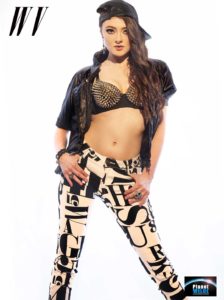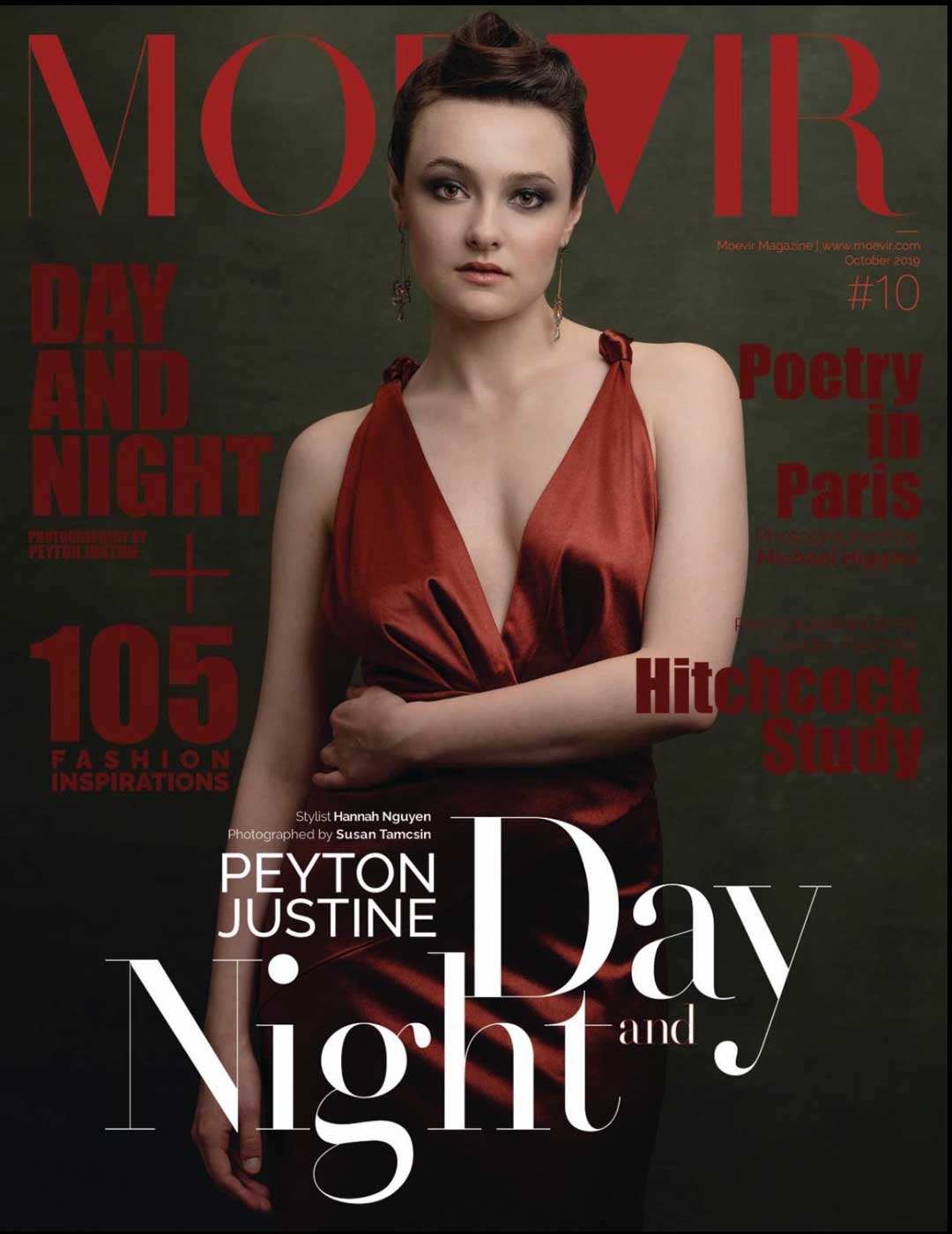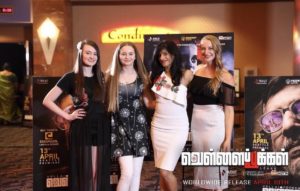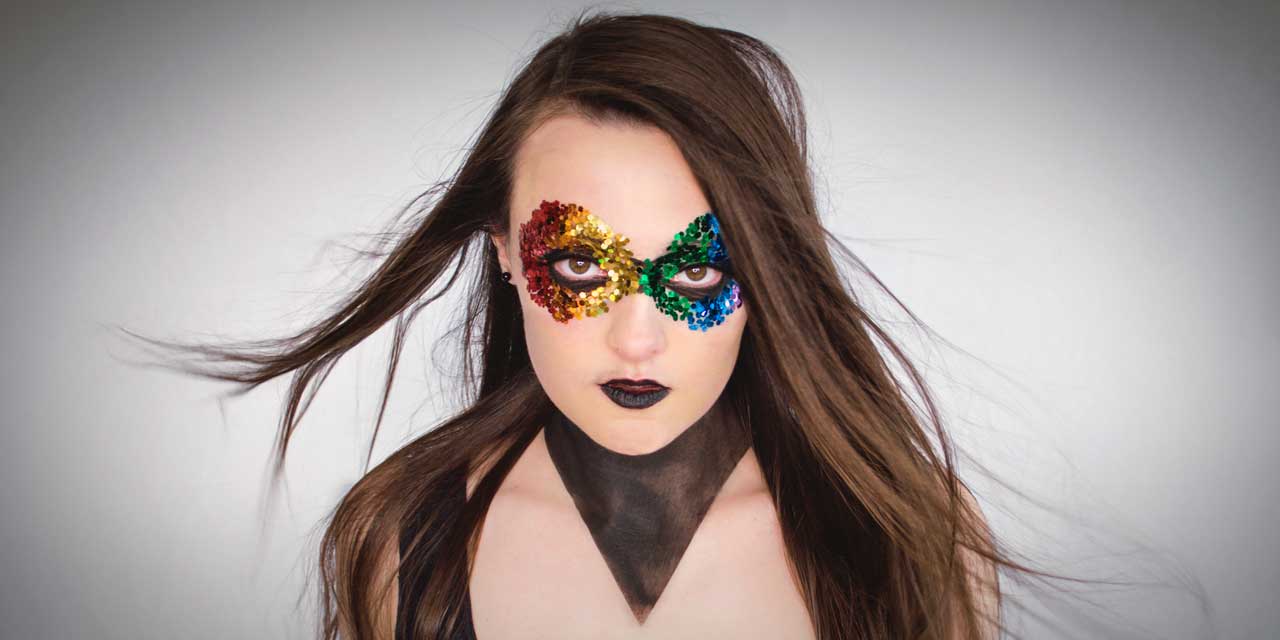PJ Âû was born and raised in the area, and she’s different – she’s an autistic/disabled actress, model, activist, and YouTuber, and we are sharing her journey to highlight Autism Acceptance Month in April.
Âû wants to bust some myths and stereotypes about autism, while sharing about her life growing up, as well as her work.
Born in Seattle, Âû still lives in the region with her husband.
“I was diagnosed as autistic when I was around 6 years old, so I grew up knowing I was different,” Âû said. “I also have a syndrome often associated with autism called hyperlexia. It’s basically the opposite of dyslexia. I was able to read and spell far beyond my years, but my comprehension was terrible. I was able to read foam letters when I was 8 months old, but I wasn’t babbling or mumbling by the age of 2. By age 3, I taught myself how to read the newspaper. It was around that time my mom decided to put me in speech therapy.”
Her family also learned that she had Childhood Apraxia of Speech; a motor disorder.
 “My brain couldn’t send a signal to my jaw to get it to open,” she said. “I was eventually able to speak, but to this day, I still have a slight speech impediment. In addition, selective mutism. Later in life, I was also diagnosed with ADHD, Persistent Depressive Disorder, GAD, and OCD. Those are just my mental conditions. Though, I wouldn’t change anything about myself. It makes me who I am and I’m glad I’m able to share my story and help other autistic/neurodiverse people with their own situations.”
“My brain couldn’t send a signal to my jaw to get it to open,” she said. “I was eventually able to speak, but to this day, I still have a slight speech impediment. In addition, selective mutism. Later in life, I was also diagnosed with ADHD, Persistent Depressive Disorder, GAD, and OCD. Those are just my mental conditions. Though, I wouldn’t change anything about myself. It makes me who I am and I’m glad I’m able to share my story and help other autistic/neurodiverse people with their own situations.”
Âû attended elementary, middle, and high schools all in the Highline School District.
“Since I know the district very well, I’m planning on opening my own before and after-school program within that area in the future as well!” she said.
Right now, she’s a nanny and tutor. “I’ve always loved helping others and seeing other people discover what abilities and passions they have as well.”
In addition to her passion for childcare, Âû loves acting, modeling, and singing.
“I’ve been doing all of these things since I was very young. It comes naturally to me, and I believe my autism is to credit for that,” she said.
Âû was a Miss WA Teen Vocalist Talent Runner-Up in 2015, she’s been in two films, was turned into a digital Halloween decoration (see clip below), and has been published twice so far in magazines. In one of those magazines, Moevir Paris, she was a cover model and got a feature throughout the magazine in October 2019. That same year, she received an award from the City of Seattle for her disability advocacy.

COVID has prevented Âû from doing much entertainment over the past year, but she appeared in a virtual panel last month about being an autistic adult.
“It was extremely successful with many teachers, parents, and other autistic teens/adults tuning in,” she said. “I’m hopeful that I’m able to do more panels in the future also.”
Âû says she is “extremely honored” to be a part of all of these activities.
“It goes to show that disabled people are being more accepted by society, but my advocacy work is still not over,” she said. “People are ‘aware’ that autism exists, but we still need more accommodations, and to be accepted, in schools and jobs. I dropped out of college because I didn’t get the accommodations that I needed there. I also had a couple nanny families turn me away because of my disabilities.”
“When people see my photos or work, I want them to know that autism, and disabilities in general, can be invisible,” she added.
Âû may appear “high-functioning,” but she’s not.
“It was suspected that I had PDD-NOS; a form of autism that was dissolved in 2013 after the DSM change. Now, all of those forms of autism are just under Autism Spectrum Disorder. We no longer use functioning labels in the community, because of how misleading, diminishing, and outdated they are, but I’m wearing a mask.”
Autistics refer to this as “masking,” where they “hide” their autistic traits to appear neurotypical.
“I wanted to highlight the infinity symbol so people know that the majority of us prefer this new symbol to represent our condition,” she said. “It also means the world to me to represent my own disabilities through my work. It’s always rewarding to get a message from a parent, or disabled person, saying that they relate or they see themselves in me. I love being able to be a part of the autistic community and making those connections with other people. Even though I can’t speak for all autistic people, sharing my experience allows the whole spectrum of autism to come together and be seen. This is why I love what I do, and what makes me proud to be autistic/disabled.”
Here’s “Life is Love,” a short film she co-starred in about two hopeless romantics who start following a couple that is seemingly in love. Who has the answer to love?:
And here’s a cool clip of her in “Ghostly Apparitions 3”:
And recently, Âû was named a top autistic influencer – read more here.
We are proud to have such a talented and lovely person like Âû as a neighbor!
Learn more by following her here:
Link to panel of neurodiverse young adults is here.


